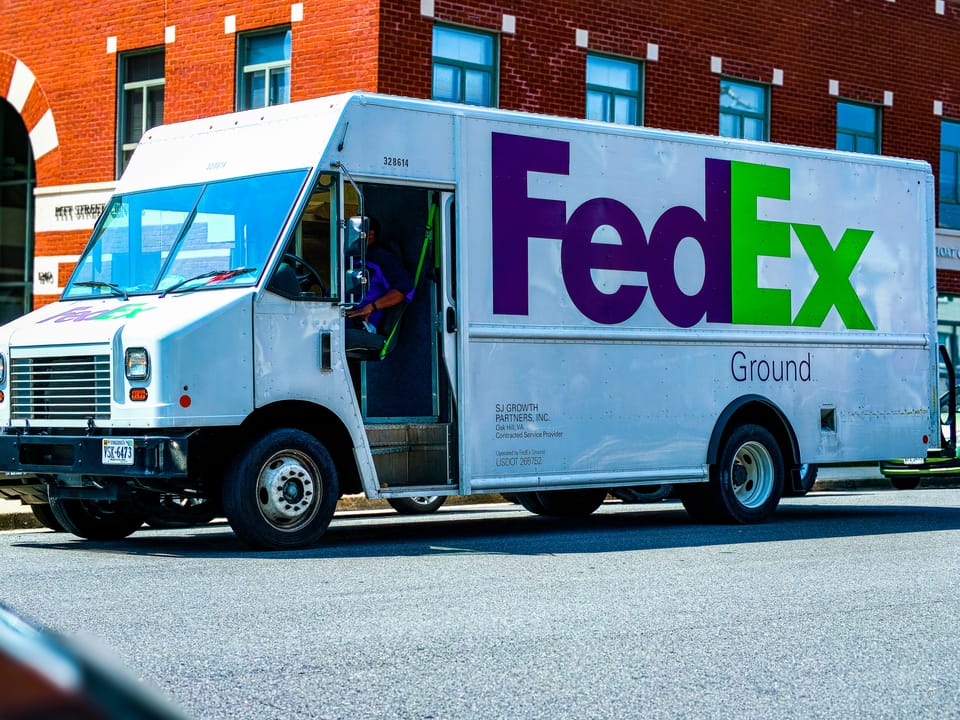FedEx appoints Karen Blanks Ellis as new chief sustainability officer

Global shipping and logistics giant FedEx announced on Thursday that it had appointed Karen Blanks Ellis as its new chief sustainability officer.
Ellis will replace the company’s longtime sustainability leader, Mitch Jackson, on July 1 following his retirement after a 39-year career at FedEx.
Ellis has been with the company since 1997 and previously held the role of managing director, Strategic Environmental Management and Sustainability at FedEx. Prior to FedEx, Ellis held engineering positions at Cummins Engine Company and Proctor & Gamble. She currently serves on the Board of the International Aviation Women’s Association and is the former chair of the Airlines for America Environmental Sustainability Council.
“In every role I have held at FedEx, I’ve been proud to work for such a forward-thinking and respected corporate actor in sustainability. Now, as chief sustainability officer, I will have the honor of taking this work forward in the company’s next chapter,” said Ellis. “I am excited to build upon Mitch’s decades of leadership and advance the sustainability strategy across our global network—particularly as we continue to work toward our goal of carbon neutral global operations by 2040.”
FedEx’s CSO is responsible for executing the company’s ESG strategy and tracking progress against its carbon neutrality goals, according to FedEx’s most recent ESG report. Ellis will also provide oversight for each operating company’s internal sustainability departments and the enterprise-wide Environmental Management System, which sets the practices implemented to maintain compliance with regulation and reduce its carbon footprint.
Eyes on carbon neutrality
FedEx announced in 2021 its goal of achieving carbon-neutral operations globally by 2040. The plan includes a US$2 billion investment and some ambitious initiatives, including decarbonising its 210,000-vehicle fleet. Last year, FedEx had 9,884 alternative fuel and electric vehicles in service, according to its ESG report.
The company’s strategy to global pick-up and delivery (PUD) fleet to fully electric vehicles by 2040 will occur in phases. The company hopes to have electric vehicles comprise 50% of its PUD vehicle purchases by 2025 and 100% by 2030.
The company, which operates the world’s largest cargo airline and brings in nearly US$88 billion in annual revenue, also plans to invest in clean energy and support carbon capture projects.
Industry-wide, decarbonisation efforts falter
Appetites for rapid package delivery are skyrocketing around the planet. Global e-commerce is expected to grow at more than double the rate as offline purchases, and by the end of this decade, some 25,000 packages will be shipped every second, according to an analysis by Stand.earth.
This leaves a hefty carbon footprint. FedEx, United Parcel Service (UPS), and DHL Group – three of the world’s largest delivery companies – combined to emit 92 million tons of greenhouse gases in 2022. The industry’s emissions are likely to grow as demand for last-mile delivery is expected to climb by 78% by 2030, according to the World Economic Forum.
Although there have been signs of progress at certain companies, the industry is not keeping pace with emissions reductions. FedEx’s emissions continue to rise as its electric vehicle deployments trail many of its competitors. UPS ditched its 2025 emissions reduction pledge, and Amazon eliminated its 2030 goal and is instead pledging to achieve carbon neutrality by 2040.







Member discussion